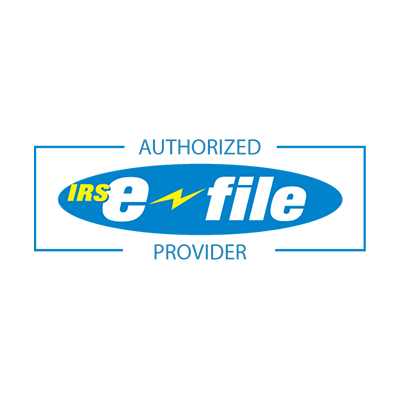Trucking is an incredibly important part of the US economy — it’s how we get the goods that keep us fed, clothed, and ultimately, alive. However, starting a trucking company isn’t easy, and it certainly isn’t cheap. You aren’t just buying a handful of computers and some office space; even if you’re a one-truck operation, you’re purchasing tens of thousands of pounds of heavy machinery. Luckily, there are plenty of tax incentives designed to help our truck drivers out; the challenge is navigating the IRS tax code. If you aren’t sure where to start, Section 179 is a great jumping-off point. With this heavy vehicle tax deduction, trucking companies can significantly reduce their taxable income, potentially saving hundreds of thousands of dollars. Here’s how it works:
What Is Section 179?
Section 179 was created as an incentive for businesses to grow their businesses by investing in equipment. With this heavy vehicle tax deduction, instead of writing off a purchase little by little over a few years through depreciation, companies have the option to write off the entire purchase all at once; businesses can immediately deduct the full price of qualified equipment in the tax year it was purchased. For instance, say a company purchases a semi-truck for $100,000 in 2021, and for simplicity’s sake, say the resale value is zero. The company could either write off $20,000 a year for the next five years, or using Section 179, write off the full $100,000 in 2021.
Who Qualifies For A Section 179 Deduction?
This commonly used heavy vehicle tax deduction may cover new, used, and even leased vehicles — what matters is that they are new to the business. That being said, the vehicle does have to meet a few requirements. To start, in order to qualify for this deduction, vehicles have to be used for business purposes at least 50% of the time. If the vehicle is used less than half of the time for personal trips, the deduction will be adjusted accordingly.
Work vehicles that are not well suited for personal use are likely to qualify for the deduction no matter what (assuming they are mainly used for business purposes). These vehicles include shuttles, vans, and buses that seat at least nine passengers, pickup trucks with a minimum of 6 foot long beds and a cargo area not easily accessible from the passenger cab, heavy construction equipment, and over-the-road trucking vehicles.
Limitations And Exceptions
While this heavy vehicle tax deduction covers quite a bit, it does have its limitations. The maximum deduction you can take for a piece of property under Section 179 is $1 million (double what it was before the passing of the Tax Cuts and Jobs Act of 2017). This cap is adjusted for inflation every year, and in 2021, the actual limit is $1,050,000. In addition, there’s a $2.5 million limit on total qualifying purchases ($2,620,000 in 2021), and for those who purchase more than $2.5 million in equipment, the deduction will be phased out.
Section 179 also has additional limitations for passenger vehicles, which according to the IRS, include any four-wheeled vehicle built mostly for travel on public streets and highways with an unloaded gross weight under 6,000 pounds. For these vehicles, the maximum deduction for both Section 179 and Bonus Depreciation (more on this below) combined is $11,160 for cars and $11,560 for trucks and vans. But of course, there are exceptions. Ambulances and hearses used for business, vehicles used to transport people or property for hire, and trucks or vans that are qualified for nonpersonal use are all excluded from this limitation.
Choosing A Heavy Vehicle Tax Deduction: Section 179 vs. Bonus Depreciation
Bonus Depreciation, also referred to as the additional first-year depreciation deduction, and Section 179 hold many similarities; both allow businesses to deduct a large portion of the purchase price of certain pieces of work-related equipment instead of writing them off over their “useful life”. However, the two are not the same. One notable difference between Bonus Depreciation and Section 179 is that Bonus Depreciation is set to expire. In 2017, The Tax Cuts and Jobs Act doubled Bonus Depreciation from 50% to 100%, but that rate only goes through January 1, 2023. Assuming Congress doesn’t change the law, the rate will fall to 80% in 2023, 60% in 2024, 40% in 2025, 20% in 2026, down to zero in 2027.
Another difference between the two is that Section 179 has limits that Bonus depreciation does not. There are no caps on Bonus Depreciation, so regardless of how much a vehicle costs or how much you spend total purchasing equipment during a year, you can deduct it all. What’s more, unlike Section 179, Bonus Depreciation deductions can be larger than a company’s annual taxable income, meaning they can be used to create a net loss.
While Bonus Depreciation does have many advantages over Section 179, the same is true in the opposite direction as well. For starters, Section 179 offers much more flexibility than Bonus Depreciation does. Businesses can pick and choose which purchases they wish to apply Section 179 to and which they would like to save as future tax breaks. Businesses can deduct any amount within the limits, and even split the deduction for individual vehicles. For example, a company could use this heavy vehicle tax deduction to write off $60,000 on a $100,000 semi-truck in the first year, and deduct the remaining $40,000 in future years. On the other hand, with Bonus Depreciation, businesses would have to deduct the full percentage for all assets in that category (ex. All 5-year assets purchased in 2021), leaving no depreciation for the future.
And finally, unlike Section 179, Bonus Depreciation is automatically applied, meaning you have to formally opt-out of Bonus Depreciation in your tax return if you don’t want to take it. In contrast, since Section 179 isn’t automatic, many entities may even forget to file for these deductions. (If a business did forget to file Section 179 expense deductions, though, it might not be too late. As long as it’s still within the three-year statute of limitations for amendments, businesses can change their deduction with an amended return.)
Bonus Depreciation and Section 179 each have their own unique benefits, but you don’t necessarily have to pick one or the other; it’s possible to use both in the same year. There’s no one size fits all formula for how to handle these deductions, so it’s best to consult with your accountant to see which one (or which combination) will be most advantageous.
Simplify Your Heavy Highway Vehicle Use Tax Return With Instant 2290
Your tax professional is the best person to turn to for advice on income tax deductions, but when it comes time to file your Heavy Highway Vehicle Use Tax Return, look no further than INSTANT 2290, the original Form 2290 e-file provider. With i2290, you can e-file your return from anywhere with internet access, saving you time, money, and providing you with a stamped Schedule 1 in minutes. Ready for a better Heavy Highway Vehicle Use Tax Return filing process (one that doesn’t involve spending hours at an IRS office)? Create an account with us today!
Special note: This article is for general purposes, and is not intended to provide, and should not be relied on for tax, legal, investment, or accounting advice. The best way to ensure you’re taking advantage of deductions and paying appropriate taxes is by following IRS regulations and consulting with a tax professional.


